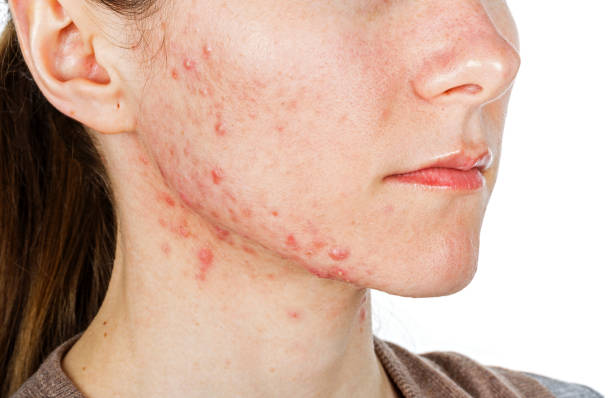In my teenage years, I was “lucky” to have acne only on my back and forehead. While it didn’t feel good, at least I could cover it with my hair and clothes. My doctor prescribed me with antibiotics and cleansers which helped to heal eventually.
But this time, things were really different.
First, I didn’t expect myself to have acne again in my mid 30s, let alone hormonal acne, which has a more complicated root cause. While I consider myself “lucky” again, that it was mainly on my jaw area, less obvious compared to getting it on my cheeks, it still gave me insecurities. I felt more self conscious of how people will look and think about me, embarrased to take off my masks to eat with friends and colleagues.
I remember the day I visited my dermatologist for the first time, I almost burst into tears when I had to take off my mask to show him my acne. One part of me felt so ashamed to have acne at this age and the other part of me was worried if I could get cured. But I told myself I will be in good hands.
The most common question I get is “What happened to your face” , “Did you cleanse your face properly”, “Why didn’t you take care of your skin”, “You must have ate alot of fried and unhealthy food”.
It felt as if having acne was wrong and I wasn’t doing enough to prevent it from happening. Unfortunately, social media mostly portrays the good side of things and more often that not, people are embarrassed to talk about it.
Here’s my advice on how to deal with acne emotionally:
1. Know that you are not alone
Acne is a common skin disorder around the world. If you are also dealing with acne (whether regular or hormonal), my advice to you is to first know that you are not alone and accept the fact for what it is.
You have to accept yourself for who you are and believe that seeking professional advice will help. Sure, it will take time to heal but you will make progress.
2. Seek professional help
If you struggle to deal with acne, consider seeking professional help. A dermatologist can advice on the best treatments and skincare regimes most suitable for your skin condition. While skin recovery is a process and acne doesn’t go away overnight, getting professional advice can speed up the course of recovery.
3. Stay positive
Only when you remain positive in a bad situation, you focus on things that you can change. Try eating a healthier diet and exercise. Eating nutrient dense foods and reducing sugary foods helps prevent inflammation in the body. Exercising produces endorphins, a feel good hormone that is important for one to remain positive.
Ultimately, skin recovery is a process. Stay positive and trust the professional help you are getting.

